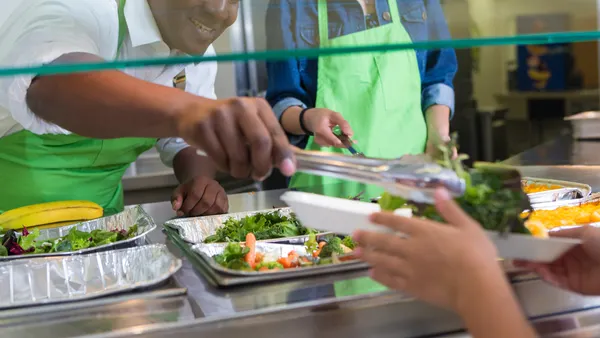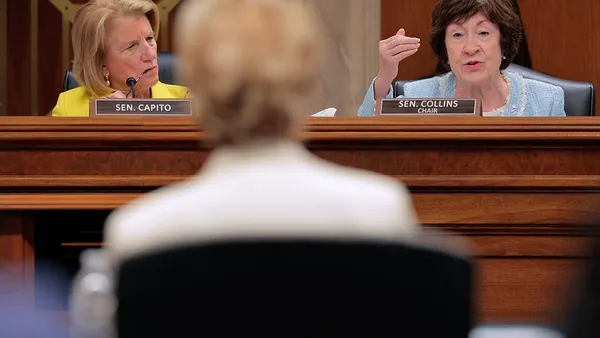Dive Brief:
- Arizona Gov. Doug Ducey last week signed into law one of the nation's most expansive school choice laws, opening the state’s education savings account eligibility to all school-age children.
- Participating families can receive over $6,500 per year per child for private school, homeschooling, micro-schools, tutoring or any other form of education provided outside of a traditional public school system. A student must no longer be enrolled in a public or charter school to receive funds from ESAs.
- However, a petition drive has already been launched to refer the universal ESA voucher expansion to the 2024 ballot. Save Our Schools Arizona, a nonpartisan, community-based organization, said it must collect 118,823 valid signatures before Sept. 24 to stop the new universal voucher program from taking effect for the 2022-23 school year.
Dive Insight:
The universal school voucher program in Arizona, which comes against a backdrop of states continuing to pass school choice legislation, is a major victory for school choice advocates.
“This is going to be the best test ever of unfettered school choice,” said Michael Petrilli, president of the Thomas B. Fordham Institute.
In signing H.B. 2853 into law on July 7, Ducey said in a statement the legislation marks Arizona as the top state for school choice and the first to provide a universal school voucher program.
“This is a monumental moment for all of Arizona’s students. Our kids will no longer be locked in underperforming schools. Today, we’re unlocking a whole new world of opportunity for them and their parents,” Ducey said.
Save Our Schools Arizona, however, estimates the legislation will cost at least $1 billion a year and cautions it could “destroy our public education system as we know it.”
“Vouchers are an irresponsible use of taxpayer funds with little to no accountability or transparency,” Save Our Schools Arizona said in a statement. “Private schools don’t have to open their books no matter how much public funding they receive.”
But Petrilli said school choice policies can have a positive impact on the education sector, with the competition encouraging traditional public schools to improve.
Earlier this year, a report by Bellwether, a nonprofit centered around shifting education and life outcomes for underserved children, found more states are pursuing school choice and flexible learning options. Another report released by the Pioneer Institute revealed education tax credit scholarships to be a growing trend, despite expectations President Joe Biden would slow down those efforts.
While the push for school choice policies existed long before COVID-19, Petrilli said frustration with school shutdowns and the role teacher unions played in keeping schools closed made a big impact.
“I think all of that gave just that much more of a push to Republican lawmakers to do more on this front,” he said.
Funding to launch this new Arizona law comes from a state budget surplus as well as federal COVID-19 spending relief dollars, Petrilli said. A big question remains as to whether the program can be financially sustained, though he said it’s hard to imagine it’ll go away once it starts.
One thing that does concern Petrilli is a potential lack of accountability to measure how students perform outside of the traditional public school system in Arizona. Petrilli said he’d prefer to see some evaluation to measure how the program performs.
“I’m not thrilled with the notion that there’s no mechanism here to encourage and to ensure that the services that are being provided are actually resulting in kids learning something,” he said.














